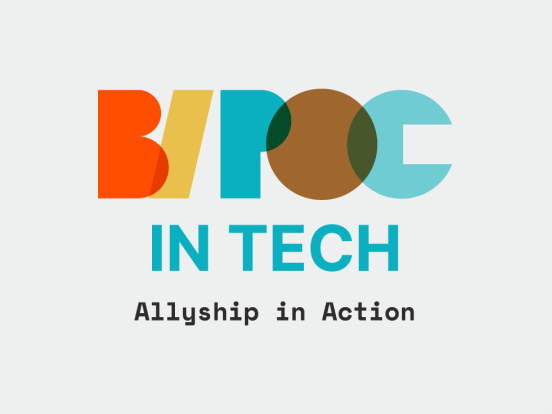This week, New Relic hosted BIPOC In Tech: Writing Your Own Script, a free event for Black, Indigenous, and People of Color (BIPOC) in the engineering and tech community, and Allyship in Action, for those who identify as allies to the BIPOC community. We hosted these events because we believe that as a leader in the technology space, we have a responsibility to build a better, more inclusive community for the underrepresented engineers, developers, technical practitioners, and other professionals we serve.
Outside of my own experience, there are many instances where I’ve had shared exposure to the life of other Black people in tech, but few surpass the BIPOC in Tech experience. BIPOC speakers provided an uncensored look at the raw truth outlining the traumatic residual effects of many years of systemic racial suppression in the workplace. Kim Crayton was engaging and passionate about educating the Black population on covert nuances of inequality and balanced her hard-hitting truths with strategies to overcome such barriers. Crayton’s unapologetic approach was eye-opening as she named systems, entities, and attitudes that alienate Blacks in tech from greater success personally and professionally. Outspoken and credentialed, Crayton spoke about various socioeconomic factors, has earned the right to speak from her heart, and was passionate about economic advancement for the diaspora.
After attending these events, which brought hundreds of attendees from across the technology industry, I hope we all feel more inspired and empowered to write our own scripts. Here are some things we can do to write our own scripts.
- Sharpen our internal fortitude. People will always have an opinion about what they think we are doing wrong. Determining which feedback to take or leave resonates with me personally.
- Forge our own lane and practice self-care. We can't let others write our scripts—if there’s no path, we need to make one. We also need to be kind to ourselves. We own our responses in those moments we are under attack, so we need to be able to step away and find peace and strength in those moments. That’s why I find it so important to have ways to re-energize whether it’s connecting with family or friends, stepping into nature, or doing something else that brings me joy.
- Draw strength from our past, present, and future. Our lives are deeply intertwined with the past, present, and future. We stand on the shoulders of our collective ancestors. They are my heroes, especially the matriarchs in my family. They paid the price for me to be where I'm at in the present. And, each day, we cast our visions of the future through our history, imagination, and dreams. This was so powerful that I’m still thinking about it.
- Surround ourselves with co-conspirators. Co-conspirators are those who actively stand up for us when we’re not in the room. It’s not about what people say, it’s about what they do. Actions are key.
BIPOC in Tech: Writing Your Own Script
Anti-racist economist and event host Kim Crayton led BIPOC attendees in an open discussion of advancing psychological safety in systems, institutions, and policies at scale. Kim hosted conversations with Arlan Hamilton, the founder and managing partner of Backstage Capital, Gabby Rivera, the first Latinx to write for Marvel Comics, and a panel of practitioners within the industry who shared their experiences working, struggling, and thriving as BIPOC professionals in tech.
The event left me with deep intense feelings of being seen, heard, connected, and home. I’m so proud of New Relic to have brought such incredible BIPOC leaders to engage with our community. But even more, dedicating an event to the BIPOC audience so that we could engage in some real deep talk and discussions. I want more of this for New Relic because it definitely strengthens connectedness.

I’ve considered myself an ally for many years. This is the first time I had a visceral response to the idea that my job as an ally is to put my physical body between the vulnerable and the harm aimed at them. And that’s scary and takes courage. And that’s the point. A key insight into what an effective ally action is: one that’s taken BEFORE the underrepresented group members are forced to ask for it. I LOVE the concept that Lev introduced of “calling people in.” As an ally, actions you can take are to solicit feedback and suggestions, and questions from underrepresented attendees in a meeting or conference. (For instance, “I’d like to hear from some non-binary participants if you feel comfortable.”) It’s a great way to use your position of privilege to elevate their voices.
BIPOC in Tech: Allyship in Action
Simma Lieberman and Fresh “Lev” White led a session for allies of the BIPOC Community, with the goal of leveling up their allyship game and becoming co-conspirators for change in a riveting, honest, and empowering series of discussions about moving from support to action.
Especially in tech, allyship can often seem like an “easy” thing to do: fly the flag. Wear the slogan. Show up for the event. I loved that Lev and Simma called on us to do more and to do it not just for other people, but for ourselves as well. To not be embarrassed by the privilege that we have and try to hide it or pretend it isn’t there, but to instead accept it and use it to make the world better.
Étapes suivantes
This is only one of many steps New Relic is taking as part of our DE&I journey. To learn about New Relic and view open roles, visit newrelic.com/careers.
Les opinions exprimées sur ce blog sont celles de l'auteur et ne reflètent pas nécessairement celles de New Relic. Toutes les solutions proposées par l'auteur sont spécifiques à l'environnement et ne font pas partie des solutions commerciales ou du support proposés par New Relic. Veuillez nous rejoindre exclusivement sur l'Explorers Hub (discuss.newrelic.com) pour toute question et assistance concernant cet article de blog. Ce blog peut contenir des liens vers du contenu de sites tiers. En fournissant de tels liens, New Relic n'adopte, ne garantit, n'approuve ou n'approuve pas les informations, vues ou produits disponibles sur ces sites.



